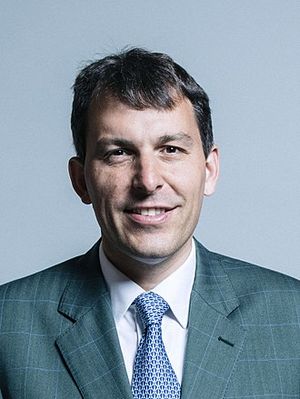John Glen
(politician) | |||||||||||||||||||||||||||||||||||||||
|---|---|---|---|---|---|---|---|---|---|---|---|---|---|---|---|---|---|---|---|---|---|---|---|---|---|---|---|---|---|---|---|---|---|---|---|---|---|---|---|
 | |||||||||||||||||||||||||||||||||||||||
| Born | 1974-04-01 Bath, Somerset, England | ||||||||||||||||||||||||||||||||||||||
| Nationality | British | ||||||||||||||||||||||||||||||||||||||
| Alma mater | Mansfield College (Oxford), Fitzwilliam College (Cambridge), King's College London | ||||||||||||||||||||||||||||||||||||||
| Spouse | Emma Glen | ||||||||||||||||||||||||||||||||||||||
| Interests | Accenture | ||||||||||||||||||||||||||||||||||||||
| Party | Conservative | ||||||||||||||||||||||||||||||||||||||
British conservative politician and Accenture consultant, with significant business ties.
| |||||||||||||||||||||||||||||||||||||||
Not to be confused with US astronaut and Senator John Glenn.
John Philip Glen is a British Conservative Party politician and former management consultant who has been the Member of Parliament (MP) for Salisbury in Wiltshire since the 2010 general election. Formerly Parliamentary Under-Secretary of State for Arts, Heritage and Tourism at the Department for Digital, Culture, Media and Sport, he currently serves as Economic Secretary to the Treasury and City Minister.
Early life and career
Glen was born in Bath on 1 April 1974, and was brought up in a small family horticultural business in rural Wiltshire. He was privately educated at King Edward's School, Bath,[1] where he was Head Boy, and Mansfield College, Oxford, where he read Modern History and was elected President of Mansfield College JCR. He was the first person in his family to go to university.
After graduating from Oxford, Glen worked for two Conservative Party Ministers in 1996–1997. He helped with the unsuccessful campaign to get the Conservative Party candidate, Michael Bates, elected in the constituency of Middlesbrough South and East Cleveland at the 1997 general election.
Following the election of a Labour government in 1997, he joined the Strategy practice of Accenture, a large management consultancy firm. Whilst there he worked on projects for Glaxo Wellcome, BP and the Post Office. In 2000, Glen went to work for William Hague, who was then Leader of the Conservative Party. In his role as Head of the Political Section of the Conservative Research Department, he helped prepare Hague for Prime Minister's Question Time and briefed the Shadow Cabinet for media appearances.
Glen was one of the youngest candidates at the 2001 general election, when he unsuccessfully stood in Plymouth Devonport as the Conservative candidate. Following the election, he took an MBA at Fitzwilliam College, Cambridge,[2] and worked in the oil and gas industries in the UK and in the United States.
Early in 2004, he returned to the Conservative Party to work as Deputy Director of the Conservative Research Department in the run-up to the 2005 general election. He then became Director of the department and set up the secretariat for the policy review that was established after David Cameron became party leader. He returned to Accenture in 2006, managing his firm's relationship with the World Economic Forum. He became a Magistrate (JP) at Horseferry Road, Westminster in 2006.
Parliamentary career
Glen was elected as the Member of Parliament (MP) for Salisbury at the 2010 general election. A safe Conservative seat, his percentage share of the vote showed an increase over the previous election in 2005.[3]
In 2010, Glen was one of eight MPs claiming public expenses to rent houses or pay for hotel rooms in London, despite already owning homes in the capital that the MPs rented out to provide themselves with additional income. The practice was apparently entirely legal.[4]
In the September 2012 reshuffle, he was appointed Parliamentary Private Secretary to Eric Pickles, Secretary of State for Communities and Local Government. He was succeeded by Henry Smith in May 2015.
On 31 January 2013, Glen published a paper titled 'Completing the Reform, Freeing the Universities' as a member of the Free Enterprise Group of MPs.[5] The paper advocated encouraging universities to build up endowments, which could then replace income from grants; reforms to the tuition fee cap towards "total course costs" instead of per-year caps, and allowing fee differentials by subject group; changes to the way in which research funding is allocated; and administrative savings by the Research Councils and the Office of Fair Access.[6] He wrote an op-ed for the Daily Telegraph about the policies advocated in the paper, titled 'Tuition fees cannot be the last reform of university funding'.[7] The paper also received coverage in the Times Higher Education magazine and was described as a possible basis for university policy in the next Conservative manifesto.[8]
In the House of Commons he has sat on the Work and Pensions Committee, the Defence Committee and the Committees on Arms Export Controls (formerly Quadripartite Committee).[9] He also sits on a number of All-party parliamentary groups (APPGs). He is the Chair of the APPG on Global Uncertainties which exists to inform parliamentarians of the activities of the UK Research Councils in response to global security challenges[10] and is vice-chair of the Carpet Industry APPG.[11][12]
References
- ↑ https://www.bathecho.co.uk/news/business/bath-business-partnership-launch-first-event-guest-speaker-john-glen-mp-66905/
- ↑ https://web.archive.org/web/20110514134505/http://www.fitz.cam.ac.uk/about/newsitem-3-36
- ↑ https://www.theguardian.com/politics/constituency/1270/salisbury
- ↑ https://www.independent.co.uk/news/uk/politics/mps-who-own-london-homes-still-claim-rent-2151575.html
- ↑ https://archive.is/20130423192550/http://www.freeenterprise.org.uk/content/completing-reform-freeing-universities-1-february-2013
- ↑ https://web.archive.org/web/20140705233301/http://www.freeenterprise.org.uk/sites/freeenterprise.drupalgardens.com/files/201302/Completing%20the%20reform%20freeing%20the%20universities_0.pdf
- ↑ https://www.telegraph.co.uk/education/universityeducation/9840069/Tuition-fees-cannot-be-the-last-reform-of-university-funding.html
- ↑ https://www.timeshighereducation.com/search/story%20asp}
- ↑ https://www.parliament.uk/biographies/commons/john-glen/4051
- ↑ https://publications.parliament.uk/pa/cm/cmallparty/register/global-uncertainties.htm
- ↑ https://publications.parliament.uk/pa/cm/cmallparty/register/carpet-industry.htm
- ↑ =http://www.carpetfoundation.com/